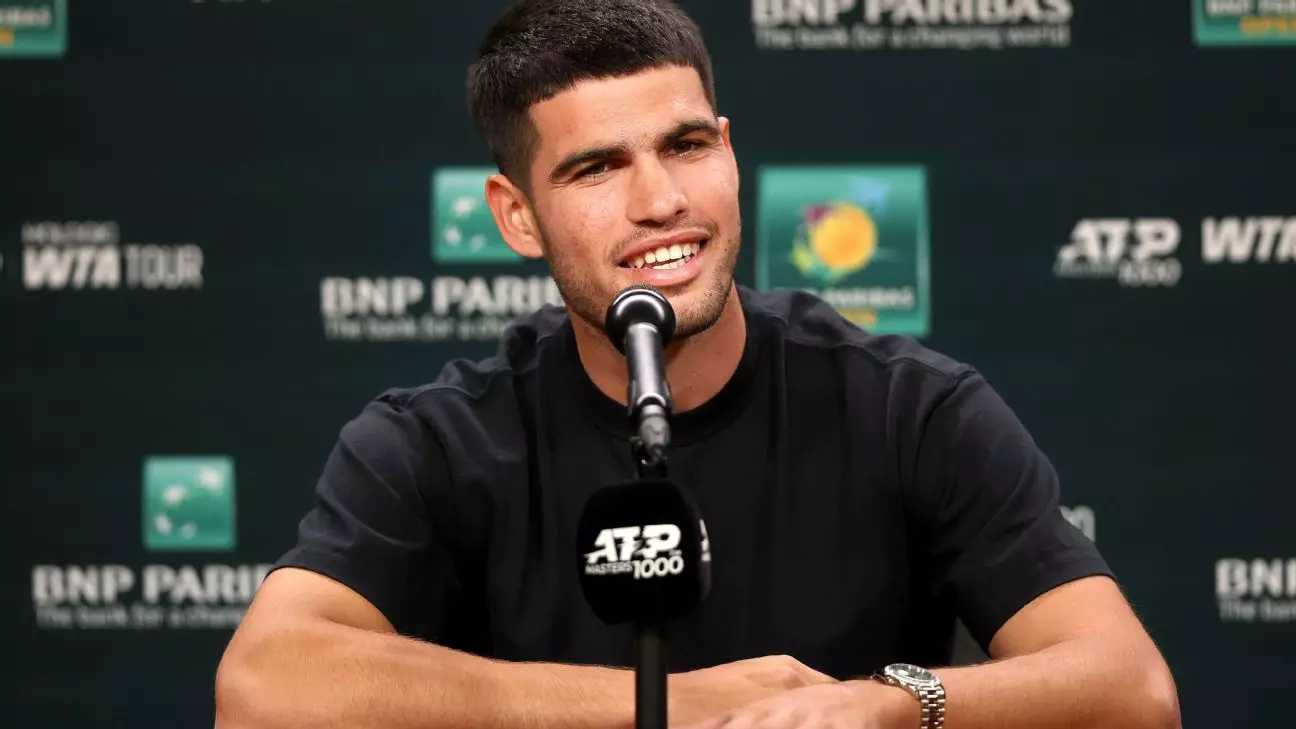In recent developments surrounding the tennis world, four-time Grand Slam champion Carlos Alcaraz finds himself navigating turbulent waters. The world of professional tennis seems to be on the brink of change as a class-action lawsuit emerges, targeting the very bodies that govern the sport. Alcaraz’s stance on the matter is particularly noteworthy, not only for its substance but for the implications it holds for the future of the sport. The lawsuit is spearheaded by the Professional Tennis Players’ Association (PTPA), co-founded by tennis icon Novak Djokovic, claiming that established organizations like the ATP and WTA operate as a “cartel.”
Alcaraz’s Independence
What makes Alcaraz’s perspective compelling is his refusal to align himself blindly with any faction, including one led by Djokovic. When questioned about the antitrust suit, Alcaraz’s response encapsulated both his awareness and his independence: “There are some things that I agree with. There are some other things that I don’t agree with. But the main thing here is that I am not supporting that.” Such clarity reinforces Alcaraz’s position as not just a participant in the sport but a thoughtful leader willing to provide opinions without succumbing to pressure from his peers.
The stark reality is that many athletes often fall into the trap of collective thinking, swaying together like leaves in the wind. Alcaraz, however, stands out as a beacon of critical thought. His level of awareness regarding the lawsuit—admitting he learned about it through social media rather than from direct communication—creates questions about communication and unity within the sport.
Players’ Concerns About Scheduling
Further complicating matters, Alcaraz found himself surprised to learn that he was cited in the lawsuit—specifically regarding concerns about the professional schedule. The document, which spans over 150 pages, reflects ongoing dilemmas faced by players concerning the demanding nature of their schedules. Alcaraz was quoted expressing worries that the intense calendar might “kill” players. Although expressed with a hint of lightness and a smile at a prior press conference, the severity of his words resonates deeply in an environment where player well-being is sometimes overlooked.
His candid critique that “there is a lot of tournaments during the year, mandatory tournaments” brings forth a salient point: How sustainable is the current system? The plight for balance between an athlete’s physical capabilities and the demands placed upon them is indeed pertinent; as the sport evolves, these issues need to be transparently addressed for the health of its players.
The Future of Athlete Representation
Ultimately, the current friction signifies a noteworthy shift in the landscape of professional athletics. Alcaraz’s declarative stance against blind allegiance to any initiative signifies a pivotal moment in tennis where athletes may soon become advocates for their rights rather than mere competitors.
The rise of the PTPA may very well be the catalyst for substantial change, but as Alcaraz illustrates, reliance on collective power without individual rationale may lead to missteps. His assertion of personal opinion in this lawsuit points toward a future where players are no longer just cogs in a much larger machine but refined voices echoing through the corridors of power in sports governance. Whether Alcaraz’s independent stance will inspire others remains to be seen, but what is clear is that the sports arena is evolving, and leaders are emerging.

